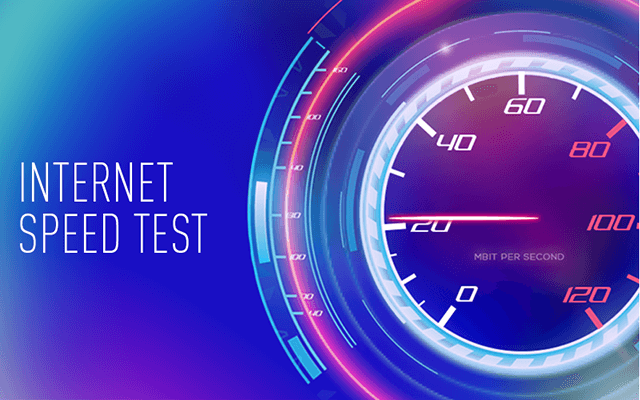Along with the content, domain age, mobile-friendliness, … page speed, or page load time, is one of the leading factors affecting SEO and Google rankings. But do you know what the good page load time for SEO is? Check out this article “What is the ideal page load time for SEO?” to know the answer.
Well, when it comes to SEO, we all know that it’s the practice that has been more and more common these days, right? Have you been doing SEO for your websites? Has this practice helped you increase the quality and quantity of traffic to your site?
.png)
Page speed, or page load time, is one of the leading factors affecting SEO rankings
If you are actively and properly doing SEO for your website, your website’s rankings on the Search Engines will be improved. But of course, it’s not easy to always get positive results when doing SEO due to a wide range of SEO ranking factors.
And page speed or page load time is nothing but one of the crucial factors affecting your SEO rankings and your traffic directly. Right below here, we are going to explore why and how page speed affects the SEO rankings of a website, as well as what the ideal page load time for SEO is! But before that, it’s good to learn a little bit about page speed or page load time first, right?
What is page load time?
Page load time, or also referred to as page speed, is the average time it takes for a page to fully display on the users’ screen. It is calculated from initiation (when the users click on a page link or when they type in a Web address) to completion (when the page’s content is completely loaded in the browser).
Page load time is usually measured in seconds. And of course, the quicker the page load time, the better. Not only is good page load time important for user experience, but also SEO rankings and web traffic. Next, we are going to find out why and how this factor affects the SEO and rankings of a website on Google and other search engines. Also, what the ideal page load time for SEO is will be discussed later on.

Page load time is usually measured in seconds
Why and how page load time affects the SEO rankings of a website?
Among various SEO ranking factors, page load time, or page speed, is considered one of the very primary ones. Search engines, including Google, have used page load time in their algorithms that determine the search engine ranking of a website. That means they are more likely to guide internet users to websites that load quickly. So, a very slow website can be one of the negative SEO ranking factors.
There are over 200 signals in the search algorithm of Google, and page speed, or page load time (of both desktop and mobile versions) is one of them. This is because, at Google, users come first. They do not like ranking sites that provide a bad user experience.
Google always wants to ensure and increasingly improve user’s experience of the web, and fast loading webpages will contribute to that. Well, just some small tweaks can help shave time off and boost your rankings.

Ideal page load time for SEO: Page load time does affect your SEO rankings both in direct and indirect ways
In addition to the rankings, page load time significantly affects users’ experiences and satisfaction. No one, of course, no one of us wants to wait too long for a website to fully show up on the screens.
Do you know that 53 percent of mobile website visitors will abandon a webpage if it doesn’t load within 3 seconds, according to the research conducted by Google? More surprisingly, a 2-second delay in load time also resulted in abandonment rates of more than 85%. What a high bounce rate!
High bounce rates can hurt your SEO rankings, too. So, as you can see, page load time does affect SEO both in direct and indirect ways, right?
What is the ideal page load time for SEO?
Before going to find out how many seconds of page load time are ideal for SEO, we should take a quick look at some statistics from semrush.com right below here. They can give you the idea why good page load time matters.
-
If your site loads in 5s, it’s faster than approximately 25 percent of the web.
-
If your site loads in 2.9s, it’s faster than approximately 50 percent of the web.
-
If your site loads in 1.7s, it’s faster than approximately 75 percent of the web.
-
If your site loads in 0.8s, it’s faster than approximately 94 percent of the web.
Through these statistics, we know that the faster your website is, the better. There will be a higher chance for your site to have a good SEO ranking if it loads quickly. Also, it seems like a big advantage if your web pages take less time than the competitors’ to display the content.

Your website’s mobile and desktop speeds need to be as fast as possible
So, what should your page load time be? Google does not specify exactly what speed is the best for SEO rankings. So, it’s so hard to know exactly what the ideal page load time for SEO is. The answer here is that you should optimize your web pages and make it load as fast as possible.
For Google, they perhaps aim for the speed of a blink. That’s why your website’s mobile and desktop speeds need to be as fast as possible, though some opinions say that as long as your website loads in about 3 seconds, it should be fine with most users. Keep reading on to know what you should do to speed up your website.
Best practices to speed up your website
To speed up your website and get the ideal page load time for SEO as well as to determine which types of website performance optimization techniques you should apply, the first thing you need to do is to identify what lowers your page speed.
Various reasons are causing your web pages to load slower than they should be. The causes might include too many large images; unoptimized browsers, plugins, and apps; too many ads; poor quality hosting; external embedded media; and many others more.
See also: Website loading speed test: Top reasons for slow loading websites (P1)
Website loading speed test: Top reasons for slow loading websites (P2)

Various reasons are causing your web pages to load slower than they should be
Depending on what causes this metric low, there will be solutions to improve the loading speed. Here are some suggestions on how to speed up your page speed:
-
Optimize image size and format. For your optimized page loading time, it’s better to stick to standard image formats like JPG. You should also keep your image sizes not too large.
-
Choose quality hosting. Web hosting plays an important role in how fast your site will load. So, it’s necessary to go for a quality and reliable hosting service.
-
Enable browser caching. If you have browser caching enabled, it will make a dramatic difference in loading time for subsequent visitors.
-
Use a CDN (Content Delivery Network). It will help your website’s content to be delivered more efficiently to users, especially for international visitors.
-
Enable Gzip compression. Gzip compression helps reduce the size of your HTML, stylesheets, and JavaScript files, in that way, it will make your website load faster.
-
Others. Of course, there are still a lot of other great practices to improve your page speed such as optimizing and minifying code, reducing and delaying third-party scripts, offloading media; using light designs, etc.
Conclusion
Recently, we explored basic things and facts related to why and how page speed affects the SEO rankings of a website as well as ideal page load time for SEO. Together with these are a few quick suggestions on how to speed up the page load time. We hope that they were all interesting and useful to you.
Sources:
hobo-web.co.uk/your-website-design-should-load-in-4-seconds/
semrush.com/blog/how-fast-is-fast-enough-page-load-time-and-your-bottom-line/
bigcommerce.com/ecommerce-answers/what-page-load-time-and-why-it-important/





0 Comments
Leave a Comment
Your email address will not be published. Required fields are marked *